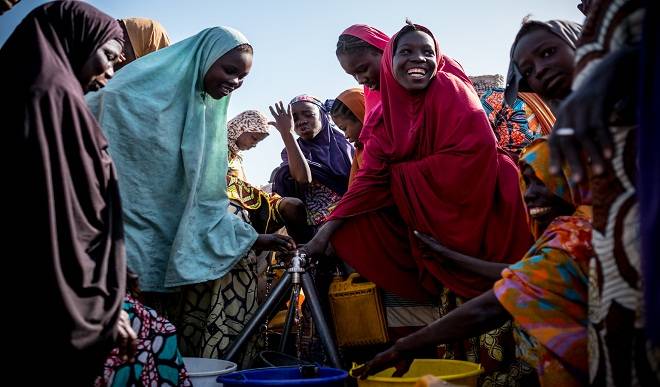Women roles changing with insurgency
The roles of women in Nigeria’s north east have changed in the wake of the long-running Boko Haram insurgency that upturned societies. But experts say women are still far from being able to make decisions and get their voices heard. The experts constituted a panel after the screening of “Shelter […]


The roles of women in Nigeria’s north east have changed in the wake of the long-running Boko Haram insurgency that upturned societies.
But experts say women are still far from being able to make decisions and get their voices heard.
The experts constituted a panel after the screening of “Shelter in the Storm”—a documentary showing humanitarian response work to empower families and livelihoods in areas of the north east devastated by insurgency.
“When it started, men who were seen as leaders and breadwinners were no longer winning bread, because the structures that allowed them to do so have been destroyed,” said Patricia Donli, a professor at University of Maiduguri.
Men—and boys who would eventually head families—have been conscripted or forced into fighting or defending themselves, others have voluntarily joined. Millions have been driven from homes as communities became displaced.
“With men [out of the picture] you find women taking leadership roles, providing, protecting their families from gender-based violence. They were ill equipped.”
The question is about how to “build capacity to take decisions in the new roles they have taken on,” said Donli.
There has been a spike in gender-based violence in the—at least 30% more in the northeast, compared to other states of the country.
Hadiza Dorayi, technical adviser on Sustainable Development Goals in the Office of the Vice President, says increasingly, boys are coming out to talk about sexual violence.
Danladi Idrissa, of the United Nations Population Fund, says sudden change and upheaval that came with the insurgency has exposed women and young people to exploitation.
It has also given rise to opportunities for some communities to elect women into decision making positions, he adds.
“But the change of roles has not really translated into decision making,” says Aurore Mathieu, campaign, media and advocacy manager at Oxfam.
Humanitarian response has to be sensitive to culture, but some have perpetrated conditions that UN Women has been fighting, including isolating women in “menstrual huts” during their monthly period.
“In peace building, we have seen women play the role of mediation,” says Salamatu Komekai, humanitarian peace and security advisor at UNWomen.
“In our response programme, we should be able to provide training for women so when they come to the table, they will be active participants,” said Komekai.
“In conflicts, we are not only responding to the humanitarian situation, we are thinking about development.”
